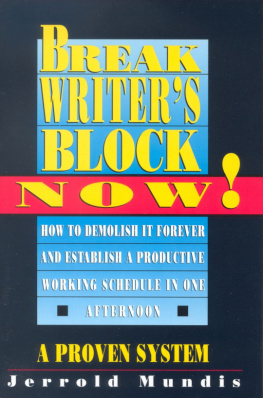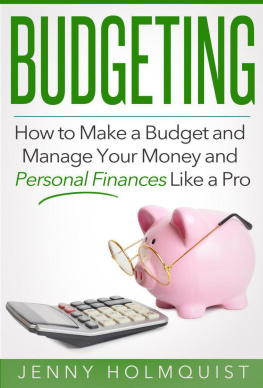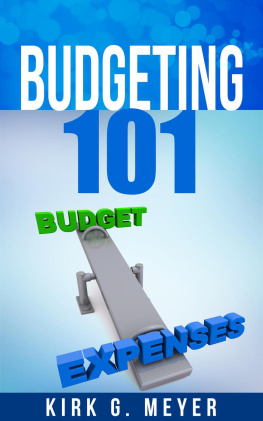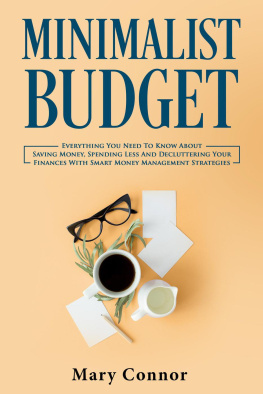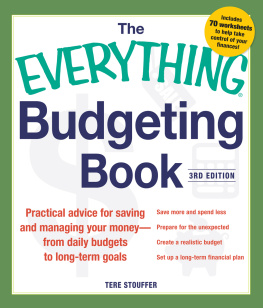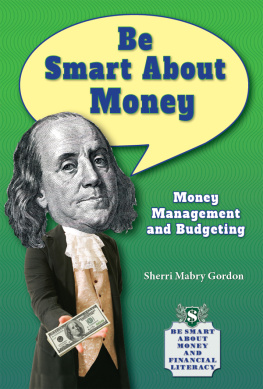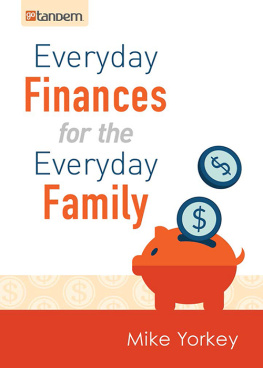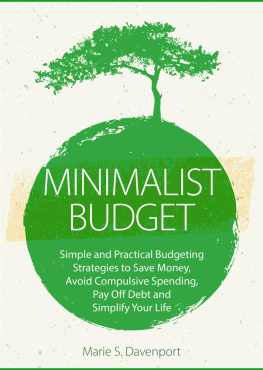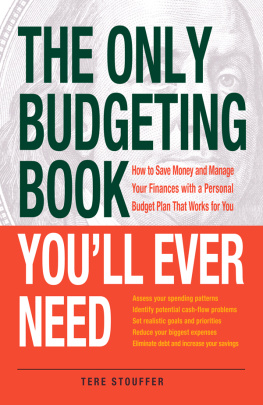Jerrold Mundis - Earn What You Deserve: How to Stop Underearning & Start Thriving
Here you can read online Jerrold Mundis - Earn What You Deserve: How to Stop Underearning & Start Thriving full text of the book (entire story) in english for free. Download pdf and epub, get meaning, cover and reviews about this ebook. year: 2011, publisher: Bantam, genre: Detective and thriller. Description of the work, (preface) as well as reviews are available. Best literature library LitArk.com created for fans of good reading and offers a wide selection of genres:
Romance novel
Science fiction
Adventure
Detective
Science
History
Home and family
Prose
Art
Politics
Computer
Non-fiction
Religion
Business
Children
Humor
Choose a favorite category and find really read worthwhile books. Enjoy immersion in the world of imagination, feel the emotions of the characters or learn something new for yourself, make an fascinating discovery.

- Book:Earn What You Deserve: How to Stop Underearning & Start Thriving
- Author:
- Publisher:Bantam
- Genre:
- Year:2011
- Rating:5 / 5
- Favourites:Add to favourites
- Your mark:
- 100
- 1
- 2
- 3
- 4
- 5
Earn What You Deserve: How to Stop Underearning & Start Thriving: summary, description and annotation
We offer to read an annotation, description, summary or preface (depends on what the author of the book "Earn What You Deserve: How to Stop Underearning & Start Thriving" wrote himself). If you haven't found the necessary information about the book — write in the comments, we will try to find it.
Jerrold Mundis: author's other books
Who wrote Earn What You Deserve: How to Stop Underearning & Start Thriving? Find out the surname, the name of the author of the book and a list of all author's works by series.
Earn What You Deserve: How to Stop Underearning & Start Thriving — read online for free the complete book (whole text) full work
Below is the text of the book, divided by pages. System saving the place of the last page read, allows you to conveniently read the book "Earn What You Deserve: How to Stop Underearning & Start Thriving" online for free, without having to search again every time where you left off. Put a bookmark, and you can go to the page where you finished reading at any time.
Font size:
Interval:
Bookmark:
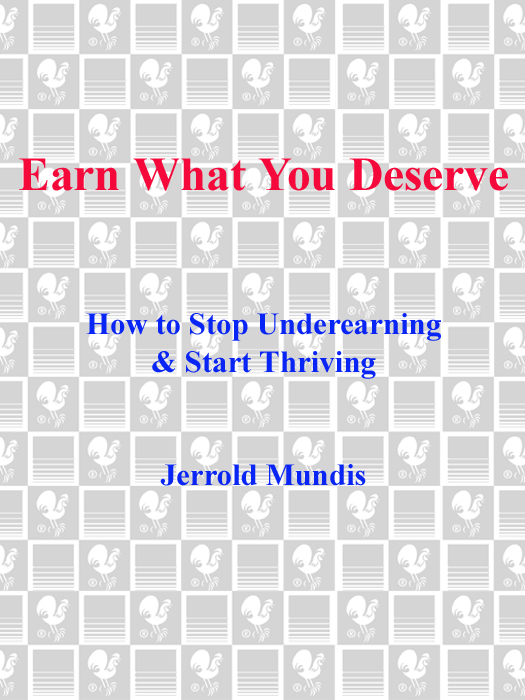
- Are you usually in debt?
- Do you have little money in savings, and few assets?
- Are you often in financial crisis?
- Do you often feel stress, pain, and fear over money?
- Do you do a lot of unpaid work: volunteer, charity, or showcase work?
- Do you have only a vague idea what your expenses are?
- Do you make do with clothes and possessions that are old, worn out, or insufficient?
- Are you certain something will come along to ease your financial situation?
- Do you fear spending money and feel resentful when you mustbut sometimes go on buying binges?
- Do you believe that money would solve all your problems?
These are some of the characteristics of underearners. If you answered yes to many of these questionsand are ready to change the way in which you relate to moneyyou will find here the practical help and empowerment you need, from someone who has conquered underearning in his own life.
Jerrold Mundis
EARN WHAT YOU DESERVE
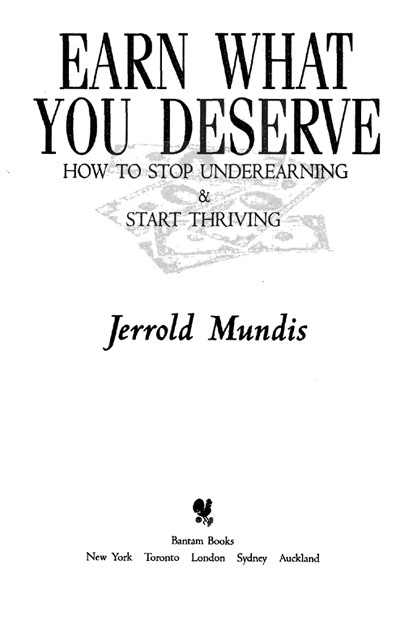
EARN WHAT YOU DESERVE
PUBLISHING HISTORY
Bantam hardcover edition / February 1995
Bantam paperback edition / March 1996
All rights reserved.
Copyright 1995 by Jerrold Mundis.
Library of Congress Catalog Card Number: 94-10329.
No part of this book may be reproduced or transmitted in any form or
by any means, electronic or mechanical, including photocopying,
recording, or by any information storage and retrieval system, without
permission in writing from the publisher.
For information address: Bantam Books.
eISBN: 978-0-307-80504-1
Bantam Books are published by Bantam Books, a division of Bantam Doubleday Dell Publishing Group, Inc. Its trademark, consisting of the words Bantam Books and the portrayal of a rooster, is Registered in U.S. Patent and Trademark Office and in other countries. Marca Registrada. Bantam Books, 1540 Broadway, New York, New York 10036.
v3.1
This, with love, is for Joanna
and for Sarah
and for many others
whom I have met and come
to care for over the past decade
BEGINNING
FUNDAMENTALS
EXPANSION
THE STEPS
T HIS IS A BOOK ABOUT PROSPERING, ABOUT CEASING TO UNDEREARN forever.
You, like me, like every other American, either:
- Have trouble meeting your bills
- Can manage them, but never seem able to create savings
- Or you have a surplus of money and rarely feel uncomfortable about how much you earn or save
Most of us fall into the first or second of these groups. And of those, millions of us do for no apparent reasonand despite our best efforts not to.
If you are such a person, as I am, then this book is for you.
In my first book on personal money, How to Get Out of Debt, Stay Out of Debt & Live Prosperously, I shared my own experience (and that of others) with getting free of debt and presented a comprehensive program, called Back to the Black, that has since helped tens of thousands of people free themselves from debt.
This book, Earn What You Deserve, is the next logical step. It will teach you step by step how to liberate yourself from underearning, stay free of it forever, and live a life of prosperity and abundance from then on. It will do this whether youre already out of debt or still getting out, whether you are an underearner whos never had much trouble with debt, or someone who simply feels that you havent been earning the kind of money you might be. Even if the question of underearning is completely irrelevant to you, and you perceive yourself just to be in a money or career rut, youll still find valuable material here that will help you manage your money more effectively, bring more of it in, and use it in more pleasurable ways.
Pain is the messenger, a man named Walter used to say.
I first heard him say that more than a decade ago. I didnt know what he meant then. I do now.
Pain is the messenger. It tells me that something is wrong.
I trip, feel pain in my leg. I look down and see a piece of bone sticking through the skinmy leg is broken. Pain, the messenger, is telling me that something is wrong, that I am hurt, that I need to do something to help myself. Without the pain, I wouldnt know anything was wrong. Id injure myself further.
Emotional or psychological pain, or discomfort, works the same way. It brings me a message: Something is wrong, you need to do something, to change something.
Three years ago, I was in pain. It was a kind of pain I had experienced before. But I hadnt known earlier what was wrong, what I needed to do, and didnt know then, either. I was bottoming-out again financially. I had been solventmeaning, for our purposes, that I hadnt incurred any new debtfor six years, and had paid off much of my old debt, and my life had certainly gotten better for that. But now, for the fourth time since I had begun to get free of debt and debting, I was running out of moneyagain.
I knew Id get through, that because I was committed to not incurring any new debt, was willing to go to any lengths not to, I would find a way. Still, I was weary and discouraged. But I had no name for what was wrong, and so couldnt even begin to imagine how to make it better. One afternoon I was expressing my disaffection to a friend, Jim Roi, a philosopher and a counselor. Jim said to me, sensitively:
Jerry do you thinkis it possiblecould it bethat you are a compulsive underearner?
I found the thought repulsive (whatever it might mean) and rejected it out of hand. Who wouldnt?
But two weeks later, after strenuous internal protest, and some frightening and disturbing thought, I knew what I was: I was, I am, a compulsive underearner.
(Dont be alarmed by the word compulsive here. Thats me. There are other kinds of underearners, too, and well be talking about them all in .)
And thus this book. It is the first, to my knowledge, ever written on underearning. It defines the condition, describes its characteristics, and sets out a complete program of liberationcalled Prospering.
Its about ceasing to underearn, foreverno matter how long youve been doing it, no matter how hard you might have tried to overcome it before.
Its not about working overtime or at a job you hate. Its not a get-rich scheme or a system of austerity.
Its Prosperinga clear and simple program that will enable you to free yourself from underearning, to stay free forever, and to bring abundance into your life.
Sure. Uh-huh.
Be as skeptical as you want. If you follow this program, youll still free yourself from underearning. These are not simply theoretical ideas. Theyve been tested and proven over the last three years by a large number of men and women who have already used them to free themselves from underearning; many more are using them right now to do the same thing. You can too.
Font size:
Interval:
Bookmark:
Similar books «Earn What You Deserve: How to Stop Underearning & Start Thriving»
Look at similar books to Earn What You Deserve: How to Stop Underearning & Start Thriving. We have selected literature similar in name and meaning in the hope of providing readers with more options to find new, interesting, not yet read works.
Discussion, reviews of the book Earn What You Deserve: How to Stop Underearning & Start Thriving and just readers' own opinions. Leave your comments, write what you think about the work, its meaning or the main characters. Specify what exactly you liked and what you didn't like, and why you think so.

